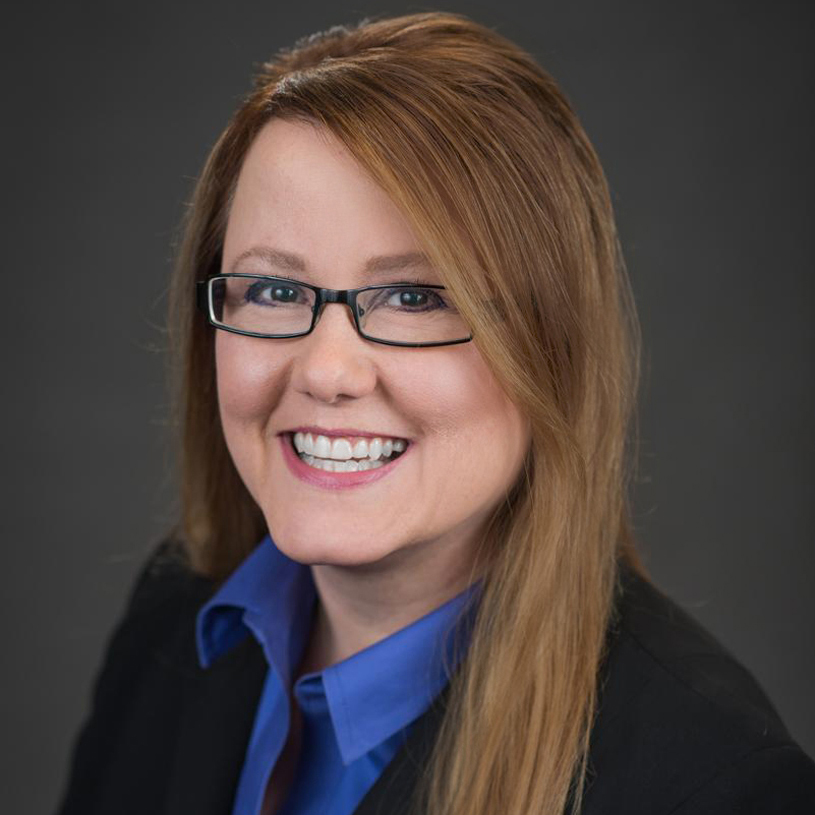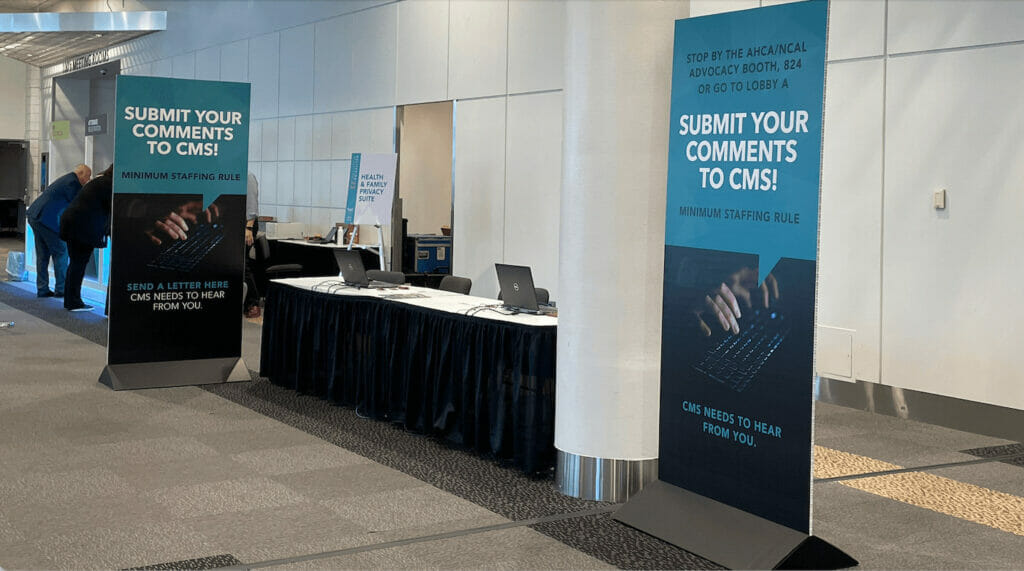
The minimum staffing mandate proposed by the Centers for Medicare & Medicaid Services for skilled nursing providers created a lot of buzz at the recently concluded annual meeting of the American Health Care Association / National Center for Assisted Living, dubbed Delivering Solutions 23. And understandably so.
Under the draft rule, released in September, US nursing homes would need to ensure that each resident receives a minimum of 0.55 hours of registered nurse care and 2.45 hours of nurse aide care each day. Nonrural nursing homes would have three years to comply, and rural facilities would have five years, according to CMS. A requirement of 24/7 RN coverage, triple the current standard, would take effect for urban providers two years after the rule is finalized — three years for rural providers.
The proposed rule is unprecedented in skilled nursing. But it wouldn’t just affect nursing facilities. It ultimately would affect assisted living providers, too.
“Assisted living communities are at risk of losing staff,” NCAL Executive Director LaShuan Bethea previously told my colleague Kim Bonvissuto. “No matter where an assisted living community sits on this continuum, a federal minimum staffing mandate threatens to take away the essential staff on which these communities depend to provide high-quality care for hundreds of thousands of residents.”
Earlier this year, 100% of assisted living and personal care home owners surveyed by the Pennsylvania Health Care Association, a state affiliate of AHCA/NCAL, said they were worried about losing staff members to nursing homes if a staffing mandate were to be adopted for nursing homes by the federal government. PHCA President and CEO Zach Shamberg told me at the time that the mandate “could pull even more workers away from an already shallow labor pool, exacerbating both the workforce and access concerns” of senior living and care providers.
As Scott Tittle, executive director of NCAL from 2015 to 2021 and now a managing director at VIUM Capital, said last week in a video message: “If you’re an assisted living operator, owner, home health, hospital, this proposed reg should be very concerning for you as well, because as you know, there’s only so much staff to go around and support all of the residents in the continuum of care.”
Providers have the opportunity to provide feedback to CMS that could result in changes to its proposal, perhaps even changes that would prevent one long-term care provider type from taking workers from another type.
AHCA/NCAL set up areas at its 2023 annual meeting to ease the process of submitting comments for attendees. The meeting is over, but assisted living providers and others can continue to have their say through the Monday, Nov. 6, commenting deadline. Input is being accepted online and via mail.
If you’d like to submit a comment online, you can do so via the Federal Register, here, or via AHCA/NCAL’s website, here. The AHCA/NCAL site also provides some background information and tips for those who wish to send comments.
The association has set a goal of sending more than 10,000 comments to CMS.
“There’s no form letter, because CMS is actually legally required to respond individually to every unique comment,” Tittle explained.
Lois A. Bowers is the editor of McKnight’s Senior Living. Read her other columns here.


